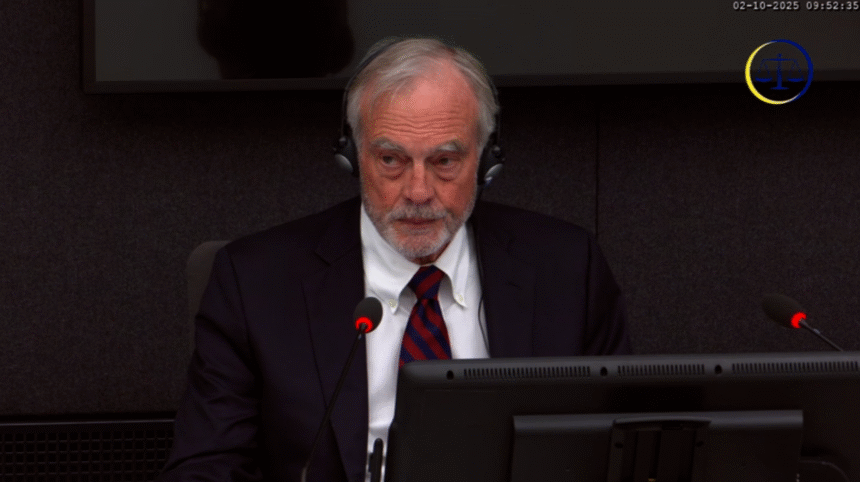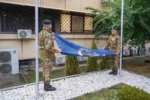THE HAGUE — James Peter Covey, former deputy to UN Special Representative Bernard Kouchner, concluded his three-day testimony on Thursday at the Kosovo Specialist Chambers in The Hague, in the trial against former Kosovo Liberation Army (UÇK) leaders.
Called as a defense witness, the American diplomat spoke extensively about the structure of the UÇK, relationships among commanders, Hashim Thaçi’s role, and several key post-war events.
Covey stated that Thaçi’s relations with UÇK commanders were often strained and that he did not always command their respect. He recalled an episode during a meeting with U.S. General Wesley Clark and British General Michael Jackson, where:
“The UÇK commanders spoke directly with the American general, while Thaçi remained withdrawn, sidelined.”
According to Covey, Agim Çeku emerged as the most influential figure within the UÇK, with the ability to secure consensus among commanders. He emphasized that the UÇK did not operate under a centralized command:
“The UÇK was not a centralized command structure but functioned as a movement where each field commander enjoyed significant autonomy.”
On Thaçi’s relationship with Çeku, Covey observed:
“They behaved correctly toward each other, but with reservations.”
A significant portion of his testimony addressed the killing of 14 Serbian civilians in Lipjan shortly after the war. Covey testified that Thaçi had been informed about the incident and remarked:
“The act happened due to the vacuum created by the lack of a police force, but he added that anarchy would not be allowed to prevail in Kosovo.”
Covey also recalled the Rambouillet negotiations, highlighting the pressure Thaçi faced:
“Thaçi appeared frightened and under pressure from the zone commanders.”
In closing, Covey described Thaçi as a developing political figure at the time:
“He came across as ambitious and intelligent, but not very developed. His political ambitions exceeded his ability to impose them. He was trying to find his way in a field where he had no prior experience.”
Covey concluded that international observers were closely watching how Thaçi navigated his evolving role.







